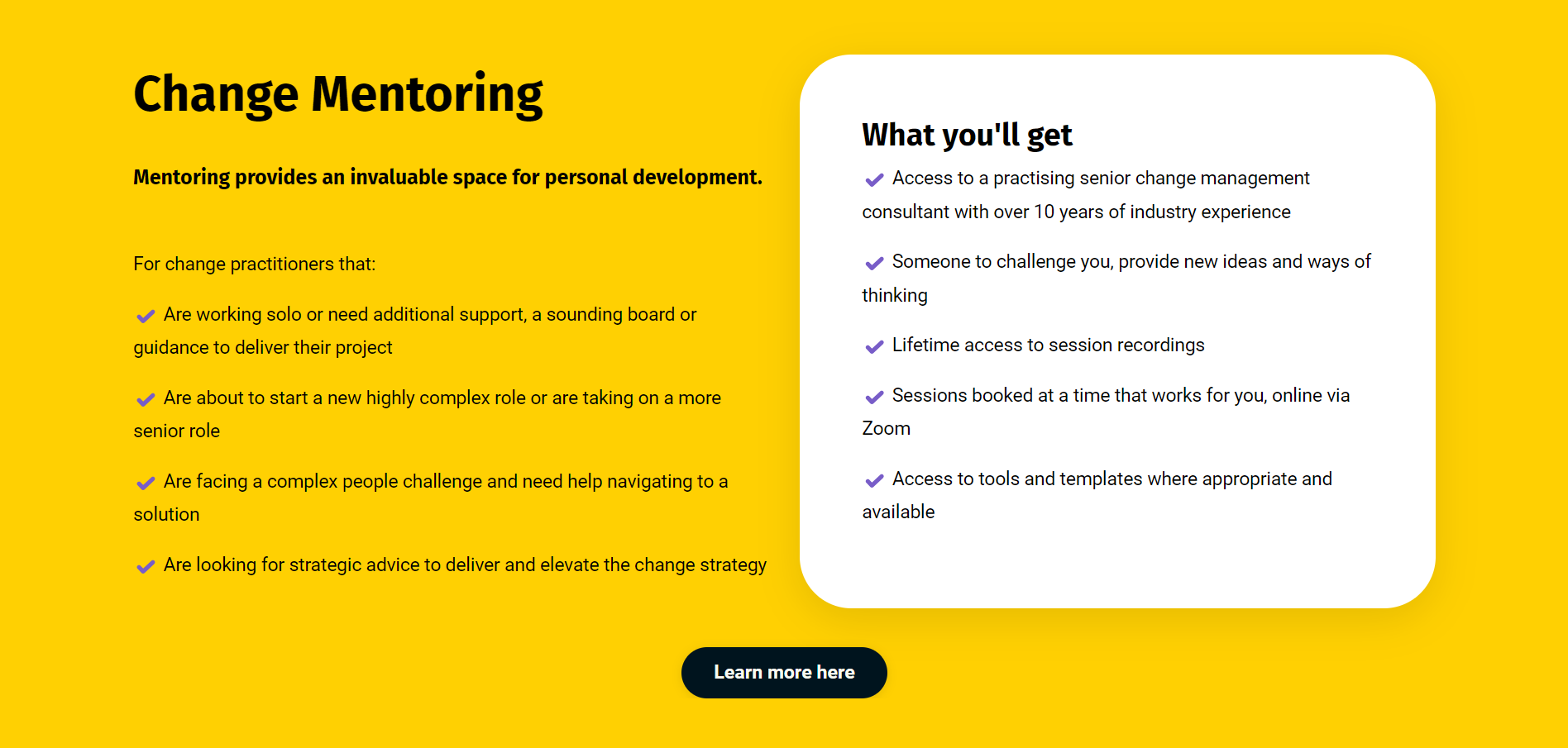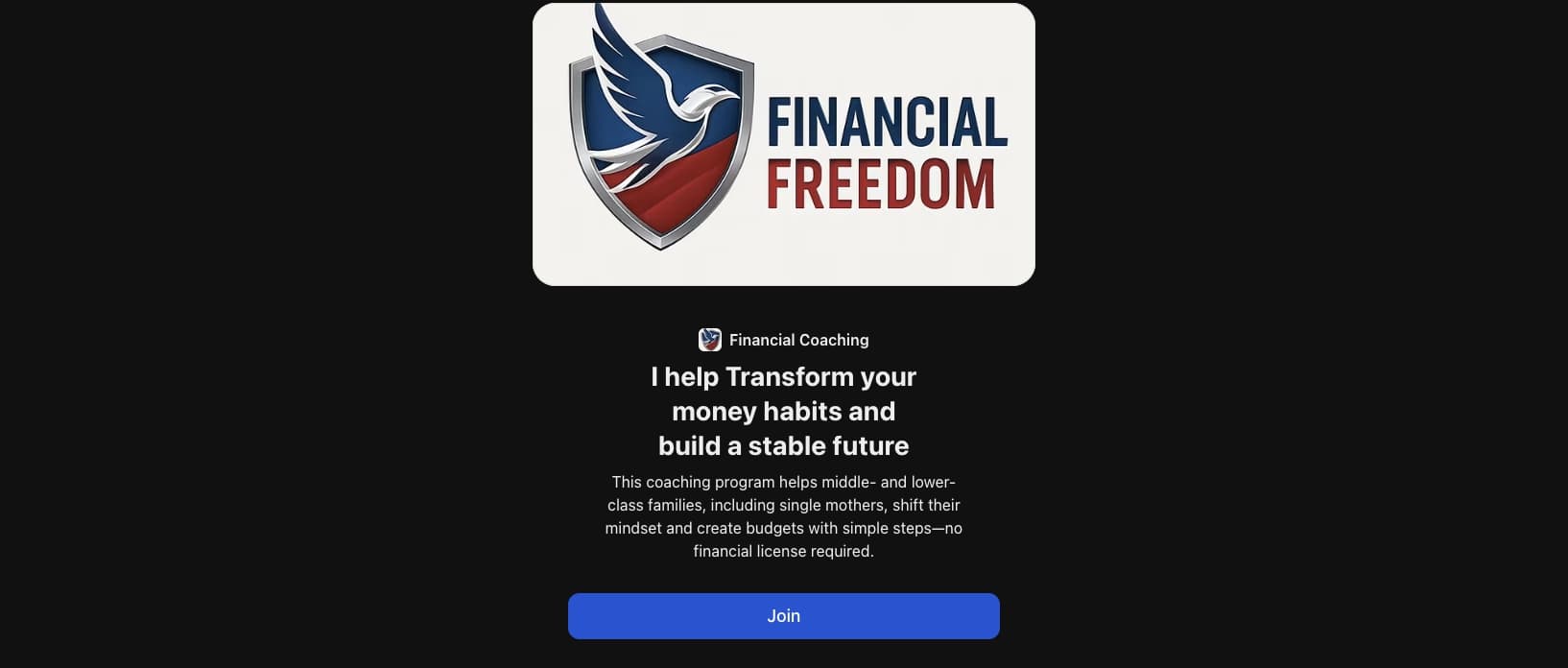Discover the top 40 lucrative coaching niches for 2026 and beyond, including how to choose and stand out in a competitive niche.
Key takeaways
- Executive and business coaching offer the highest earning potential, with rates reaching $500-$1000 per hour for experienced coaches.
- Certification from organizations like ICF significantly boosts credibility and helps coaches command premium rates.
- Niching down within coaching categories and building a proven framework helps differentiate your services and attract ideal clients.
Looking for a profitable coaching niche? Look no further.
The coaching industry is booming, projected to hit $7.3 billion in 2025.
Below are 40 of the most lucrative coaching niches, along with earning potential and how to get started in each.
40 popular coaching niches that make money
Below, we’ve listed the top 40 lucrative niches for coaches.
Whether you want to make money online as a virtual coach or sell in-person services, there's something for you on this list.
1. Executive coaching

Executive coaching is considered to be one of the most lucrative coaching niches.
Leading executive coach, Marshall Goldsmith, charges around $4000 for his Stakeholder Centered Coaching certification. He charges clients $250,000 (once they see an improvement).
Executive coaches work with high-level professionals to shape their mindset and achieve their career goals. They might help a client to develop strategies for managing conflict in the workplace, or advise them on fostering a growth mindset.
Whilst executive coaching is lucrative as a broader niche, it also contains smaller, lucrative sub-niches and related niches.
Best for: Experienced professionals with a background in leadership and business strategy. Ideal for former execs, consultants, or HR professionals.
How much you can earn: Entry-level coaches can earn $150-$300/hr, while experienced coaches charge $500-$1000/hr.
How to get started:
- Gain coaching certification (e.g., ICF, Marshall Goldsmith SCC).
- Build a track record by offering free sessions or case studies initially.
- Network within corporate sectors via LinkedIn, conferences, or referrals.
- Create a clear framework/methodology to differentiate your offer.
2. Leadership coaching

Leadership Coaching focuses on developing the core skills leaders need to thrive — including communication, decision-making, emotional intelligence, and team management.
These coaches work closely with executives to identify their leadership strengths and apply them effectively in real-world situations.
The goal? To help leaders navigate complex challenges, inspire their teams, and deliver stronger business results.
Dr. Rick Johnson of RJCG founded the unique Differentiated Leadership Model. This model helps clients develop the characteristics of differentiated leaders, who exhibit higher EQ levels.
Best for: People with a strong grasp of management, communication, and team-building. Ideal for former team leads, managers, or leadership development trainers.
How much you can earn: Typical rates for leadership coaching range from $200 to $600/hr.
How to get started:
- Get certified (ICF or a leadership-specific program).
- Offer group workshops or free seminars to attract leads.
- Niche down (eg tech leadership, female leaders, startup founders).
- Share leadership insights regularly on platforms like LinkedIn.
3. Executive team coaching

Executive team coaches help execs and high-level managers to improve productivity, build stronger relationships, and boost performance in their teams.
For instance, Cherie Silas and her team at Tandem Coaching offer execs mentoring to lead their teams with confidence and improve their communication skills.
Best for: Professionals who understand group dynamics and cross-functional collaboration. Ideal for team managers, agile coaches, or HR consultants.
How much you can earn: On average, you can earn between $500 and $1,500 per team session, or around $3000-$10000 per month.
How to get started:
- Get trained in team coaching frameworks (e.g., Team Coaching International, ORSC).
- Partner with organizations undergoing restructuring or rapid scaling.
- Run pilot workshops for small teams to build testimonials.
4. Change management coaching

Change management coaching helps executives to adapt and grow in ever-changing environments.
With this type of coaching, leaders are supported to reframe challenges in their organization as opportunities.
Jane Waterson, founder of Delta Mash, offers coaching and mentoring to individuals and organizations as they navigate change in projects, new roles, and more.
Best for: Professionals with experience in consulting, project management, or organizational change.
How much you can earn: On average, you can charge $150-$400/hr for individual sessions.
How to get started:
- Obtain change management certifications (e.g., Prosci, ACMP).
- Learn coaching tools to blend strategy and mindset work.
- Position yourself as a “transition” or “transformation” partner.
5. Executive career coaching

Executive career coaches might assist execs with adjusting to new roles, improving their skills and changing their mindset for professional growth, and branching out into other industries or setting up a business.
That's exactly what Jody Michaels does, with her team over at Jody Michaels Associates. Execs can reach out and get dedicated coaching to help with their career change or promotion.
Best for: Career advisors, recruiters, or corporate veterans who understand the executive job market.
How much you can earn: Around $150–$350/hr for one-on-one coaching or upwards of $10,000+ for coaching packages.
How to get started:
- Offer resume/LinkedIn revamps to attract early clients.
- Specialize in verticals (eg tech, finance, healthcare).
- Use success stories and data (salary increases, job placements) to prove value.
6. Financial coaching

Financial Coaching helps clients take control of their money — from managing debt and budgeting to building wealth and long-term financial habits.
A financial coach works one-on-one with clients to improve spending, saving, and overall money mindset.
While formal qualifications aren't required, credibility is key. Highlight any relevant experience, proven results, or industry knowledge. To boost your authority, consider earning a financial coaching certification through organizations like the AFCPE (Association for Financial Counseling & Planning Education).
Licensed financial advisors, like Cesar from Financial Coaching, are offering their services right here on Whop for a whole range of different clients.
Best for: Licensed advisors and individuals with financial planning, accounting, or personal finance expertise.
How much you can earn: Around $100-$300/hr for personal sessions, with group programs scaling up to $100,000/year.
How to get started:
- Get certified (eg from AFCPE or Ramsey Solutions).
- Build trust by sharing personal finance wins and money tips online.
- Offer group sessions, templates, or budgeting tools as part of packages.
7. Wealth coaching

Financial coaching helps clients manage different aspects of their finances, while wealth coaching helps them to accrue wealth and hold onto it.
Wealth coaches advise clients on how to grow their finances, create a plan to manage their money, and maintain saving and investing habits.
Wealth and finance coach Keina (of Wealth Over Now) supports clients who are feeling overwhelmed or worried about money. That includes clients who are earning good money - but struggling to manage it successfully.
Best for: Those with deep experience in investing, money mindset, or long-term wealth strategy. Especially ideal for ex-financial advisors or high-income earners.
How much you can earn: On average, you can expect to earn $200-$500 per 1-hour session.
How to get started:
- Create a proven framework around saving, investing, and wealth psychology.
- Focus on long-term clients (e.g., 3–6 months).
- Leverage testimonials to show ROI from your guidance.
8. Trading coaching
Trading coaches help clients learn strategies, establish trading goals, and offer feedback on their trading methods.
If you’re an expert at spotting market trends, then you might want to consider the trading niche.
TJR Trades combines his coaching services with an online trading community, course, and webinar.
Best for: Experienced traders with a track record of profitable trades and risk management. Strong fit for those comfortable teaching complex topics clearly.
How much you can earn: $150-$500/hr for sessions, with bundles/packages that sell for $1,000-$5,000+.
How to get started:
- Build a strong public record or trading community.
- Offer screen shares, trade journals, and live feedback sessions.
- Use platforms like Whop to scale offers.
9. Real estate coaching

Real estate coaches advise clients about how to find the right properties, connect with sellers, and keep track of industry trends.
When you offer coaching through an online marketplace like Whop, you won’t be held back in terms of what you can offer.
Hold My Hand Wholesale offers live 1-on-1 mentorship, access to an exclusive Discord community, along with courses and software.
Best for: Real estate agents, wholesalers, or investors with a strong record in closing deals.
How much you can earn: Around $200-$500 per session or $2,000-$10,000 for a coaching package.
How to get started:
- Document and share your own deals (TikTok, YouTube, IG).
- Niche down (eg wholesaling, Airbnb, flipping).
- Sell coaching with real estate deal templates, scripts, and tools.
10. Financial freedom coaching
Financial freedom coaching focuses on helping clients eliminate money stress and build a life of financial independence.
These coaches guide clients in reducing debt, improving spending habits, and uncovering new income opportunities.
Sessions often include setting realistic financial goals, improving credit scores, managing debt, and exploring profitable ways to earn.
Like wealth coaching, many clients may already earn six figures — but are seeking the clarity and confidence to make their money work for them.
Best for: Coaches with personal stories of getting out of debt or achieving passive income.
How much you can earn: You can expect to earn $100-$300/hr for live coaching.
How to get started:
- Share your own “freedom” journey; paying off debt, quitting 9-5, etc.
- Focus on high-impact areas: budgeting, debt payoff, money mindset, side hustles.
- Sell clarity calls, tiered programs, and passive income toolkits.
11. Business coaching
Business coaching helps entrepreneurs and professionals overcome challenges, scale their ventures, and sharpen their leadership skills.
From startup founders to seasoned executives, clients benefit from personalized support in goal setting, mindset development, strategic planning, and performance improvement.
On average, business coaches earn over $100,000 per year, but top performers can go far beyond that. In Forbes, business coach BJ O’Neal suggests aiming for $10,000 to $30,000 in monthly income — a realistic target for those who deliver real results.
Best for: Entrepreneurs or operators with real-world business experience and people who’ve scaled a startup, led teams, or grown a service-based business.
How much you can earn: Around $100k-$300k+/year. High-ticket coaches often charge $2,000–$10,000 per package.
How to get started:
- Pick a niche (small businesses, SaaS founders, brick-and-mortar owners, etc).
- Leverage your own success or experience.
- Offer free or discounted calls to collect testimonials.
- List your services on LinkedIn, Whop, or coaching marketplaces.
- Consider a certification like ICF to boost trust with premium clients.
12. Marketing coaching
The European Kid teaches other businesses how to build a personal brand and go viral
Marketing coaching can be split into several subtypes. You might specialize in PR, content marketing, SEO, or a specific social media platform.
Marketing coaches advise and support brands to boost their marketing campaigns and bring in new sales.
They typically help clients to decide on a vision and aesthetic for their marketing, develop a marketing plan, teach strategies, and support with implementation.
Best for: Marketers with experience in growing brands, running campaigns, or scaling offers, as well as creators or freelancers who’ve built a strong personal or client-facing brand
How much you can earn: You can expect to earn $50k–$90k/year on average. Top coaches earn $150k+ with group programs and digital products.
How to get started:
- Choose a specialty—SEO, email, DTC, or Instagram strategy.
- Build a portfolio showing results (case studies, analytics, before/after).
- Start with 1:1 calls, audits, or retainers.
- Offer bundled products, like templates, swipe files, or strategy decks.
- Use Whop to package your offer with community or downloadable content.
13. Sales coaching
Sales coaches help sales representatives to build their skills, confidence, and understanding of the best sales techniques.
They advise reps about maximizing their performance and income, and gaining the best opportunities for their career.
Best for: Top-performing sales reps or sales managers and people who’ve hit quota repeatedly or built sales teams from scratch.
How much you can earn: Between $60K–$120K/year. Top sales coaches earn $250/hour or $5K/month per client.
How to get started:
- Use your own sales metrics (eg quota hit rate, deal sizes) as social proof.
- Offer mock call reviews, objection handling sessions, or onboarding help.
- Focus on a specific segment, such as tech reps, solopreneurs, or early-stage founders.
- Promote via LinkedIn or run live workshops to build authority.
- Use Whop to bundle call recordings, scripts, and support resources.
14. Entrepreneur coaching
As it sounds, entrepreneur coaches focus more closely on personal development, along with business mentorship.
These coaches train founders to align their brand with their values, establish an entrepreneurial mindset, and maximize their revenue.
If you’ve set up your own business and turned it into a powerhouse, this could be the most lucrative coaching niche for you.
Entrepreneurial coaches should have a good understanding of motivational techniques to keep their clients invigorated to face challenges.
Best for: Successful founders and entrepreneurs.
How much you can earn: Expect to make $80K–$200K/year. High-end coaches charge $1,500–$7,500 per coaching package.
How to get started:
- Highlight your own founder journey, including wins and lessons.
- Offer 1:1 coaching, mindset sessions, or clarity intensives.
- Use TikTok, Instagram, or a podcast to grow your personal brand.
- Collect testimonials from early-stage founders or accelerator grads.
- Create a Whop offering with video content and live support.
15. Ecommerce coaching

Ecommerce coaches help you to grow your business and increase sales. They often support clients to use platforms like Shopify and WooCommerce, or marketplaces like eBay, Amazon, and more.
For example, The Buy Box supports entrepreneurs looking to scale their FBA business on Amazon. Along with guides and courses, their customers have access to 1-to-1 mentoring calls when needed.
Best for: Successful online sellers (Shopify, Amazon FBA, WooCommerce) and entrepreneurs who have scaled stores or products to six figures
How much you can earn: Around $70k-$150k+/year; clients often pay $300–$1,500/month depending on support level.
How to get started:
- Share real store performance and growth (screenshots, case studies)
- Offer free audits or growth strategy calls to attract early clients
- Package your methods into bundles: SOPs, checklists, video breakdowns
- Use Whop or your own site to offer tiered access (self‑study + coaching)
Fancy branching out into ecommerce? Learn about Amazon FBA vs dropshipping.
16. Health coaching
Health coaching is a fast-growing industry — valued at $7.6 billion in the U.S. in 2023 and projected to reach $9.17 billion by 2028.
These coaches support clients in managing their well-being, overcoming health challenges, and building sustainable habits around nutrition, exercise, stress, and lifestyle.
They work collaboratively with clients to set health goals, create personalized action plans, and navigate obstacles like poor eating patterns or chronic conditions.
Earnings vary by experience, ranging from $50,000 to $100,000+ per year. While beginners may charge around $50/hour, experienced coaches often command $100+ per session.
In most cases, a background in health or wellness is essential. Aspiring coaches should pursue recognized certifications such as the National Board Certified Health & Wellness Coach (NBC-HWC) to boost credibility and trust.
Best for: Certified health/wellness professionals (NASM, NBHWC, ACE), as well as people passionate about fitness, nutrition, habit change, and balance.
How much you can earn: Around $50K–$100K/year. Most charge $75–$200/hour or $500–$2,000/month.
How to get started:
- Get certified through NASM, NBHWC, or ACE.
- Pick a niche—general health, women’s wellness, or weight loss.
- Offer 1:1 check-ins, habit tracking, or goal-setting plans.
- Post transformations or healthy lifestyle content on IG/YouTube.
- Use Whop to package plans, trackers, or accountability challenges.
17. Nutrition coaching
Nutrition coaches advise their clients about healthy eating, support them to develop strategies to sustain a healthier diet, and help them to reach nutritional goals through accountability and guidance.
However, you’ll need to be aware that nutritional coaches are not the same as qualified nutritionists. You can’t diagnose or treat medical conditions, for example.
According to Salary.com, the average salary of a nutrition coach in the US is $70,611 per year. Again, as coaches determine their own rates, some can earn considerably more than this.
Best for: Coaches with certified nutrition training (Precision Nutrition, ISSA, etc.) and people passionate about sustainable eating habits and meal planning.
How much you can earn: $60K–$120K/year. Many charge $300–$1,000/month for 1:1 support.
How to get started:
- Get certified through Precision Nutrition, ISSA, or similar.
- Choose a focus—gut health, macros, weight loss, or performance.
- Offer meal plans, progress check-ins, and food log reviews.
- Create content that debunks myths or explains your approach.
- Use tools like habit trackers, recipe packs, or weekly goal sheets on Whop.
18. Wellness coaching

Wellness coaches help their clients to reach an improved state of well-being, reducing stress and boosting their mood.
They typically create wellness plans with their clients, help them to develop healthier life habits, and encourage a wellness mindset.
They can also specialize further, for example into stress or pain management. For example, MKE provides support and physical therapy exercises through their Discord server.
Best for: Professionals with certification or experience in holistic wellness (stress, burnout).
How much you can earn: $45K–$90K/year. Some charge $75+/hour or $200–$500/month for group support.
How to get started:
- Earn a general certification or specialize in stress, mindset, or lifestyle.
- Start with free sessions to build confidence and get testimonials.
- Offer group coaching, daily prompts, or live meditations.
- Post calming, value-driven content on TikTok, YouTube, or Instagram.
- Sell bundles or memberships on Whop that include guided exercises or resources.
19. Sleep coaching
Sleep coaches aid clients in understanding the science of sleep. They help them to develop better sleep hygiene, create action plans for a restful night, and work towards improving their sleep quality.
Salaries for sleep coaches average at around $35,000. But freelance coaches can set their own rates for coaching packages. These can range from hundreds to thousands of dollars.
Again, it’s important to distinguish between the role of a sleep coach and the more qualified sleep consultants, who are trained medical professionals.
Best for: Certified sleep practitioners or coaches with experience in restorative habits
How much you can earn: $35K–$70K/year. Package prices range $300–$1,200, depending on duration and depth.
How to get started:
- Complete specialized sleep certification (Spencer Institute, Institute of Integrative Sleep Coaching)
- Focus on target segments: parents, professionals, shift workers
- Offer structured sleep plans, resources, check-ins, and toolkits
- Package coaching, trackers, and audio guides on Whop
20. ADHD coaching
Caren Magill is an ADHD coach and someone who has ADHD
ADHD coaches help their clients to navigate the challenges of the disorder, create strategies for managing daily life, and work towards attainable goals.
According to data from Salary.com, ADHD coaches in the US earn on average between $39,788 to $51,814 per year. Freelance ADHD coaches typically charge up to $250 per session.
Whilst experience is essential, qualifications can also be beneficial, such as through the ADHD Coaches Organization.
However, as always, it’s important to remain aware that generally, ADHD coaches are not qualified psychologists, psychiatrists, or therapists.
Best for: Neurodivergent individuals with personal experience managing ADHD and certified professionals (PAAC, ADDCA).
How much you can earn: $60K–$120K/year. Sessions usually $100–$300. Recurring monthly packages from $500+.
How to get started:
- Get certified (PAAC, ADDCA) or complete ADHD training (optional)
- Share your own ADHD systems and transformations
- Offer 1:1 coaching, co-working accountability, or resource kits
- Build packages or subscriptions for ongoing structure and support
21. Life coaching
Life coaches help clients to work on their personal development, manage life challenges, and reach out for new opportunities.
"There were a couple of coaching niches I was interested in, so I started working with some clients in each area to see which niche I gravitated towards."
- u/DesignYourPath0, life coach and founder of Thriving Coach Academy
Life coaching is goal-oriented, and assists clients in finding their own way forward. It’s not the same as therapy, which involves a trained mental health professional working through talking therapies, like CBT.
The average salary for life coaches in the US is $63,750. In terms of self-employed coaches, rates vary depending on experience and sub-niche. Life coaches typically charge from $75 up to $300+ per hour.
Best for:
- Empathetic, intuitive individuals with a passion for personal growth
- People who have overcome major life transitions or mindset shifts
- Great communicators who enjoy helping others unlock potential
How much you can earn: $50K–$100K/year. Rates range from $75–$300/hour. Elite coaches earn $150K+ with packages.
How to get started:
- Choose a sub-niche (e.g. confidence, burnout, post-divorce recovery)
- Offer free or discounted sessions to collect testimonials
- Share your story and transformation online to build trust
- Optional: Get certified (e.g. iPEC, CTA) to boost authority
22. Retirement coaching
Retirement coaches help their clients to make sense of this change in their lives, reframe their mindset, and plan out new goals.
They may support clients to take part in voluntary work, reconnect with family, or deep dive into hobbies.
These coaches focus on the emotional challenges of retirement, not the financial issues - unless they have training and experience in this area.
To become a retirement coach, you’ll usually need to have experience with retirement (or retirement processes), or you can become certified through training. Retirement coaches generally charge rates of between $100 to $300+ per hour.
Best for: Retirees, mid-career pros, HR professionals with transition experience, or certified retirement professionals.
How much you can earn: $50K–$90K/year. Coaches charge $100–$300/hour. Packages often $500–$2,000+.
How to get started:
- Start by coaching others through your own retirement journey
- Get certified (e.g. Retirement Options, LifePlanningNetwork)
- Offer workshops or partner with retirement communities
- Create digital resources or coaching bundles on platforms like Whop
23. Menopause coaching

Menopause coaches help women to navigate the emotional challenges of the menopause. They help menopausal women to find their purpose, create plans for their future and well-being, and understand the impact of their symptoms.
Typically, menopause coaches are women who have lived experience of going through menopause.
There are also courses, including menopause wellness diplomas, that can be beneficial. Whilst, again, coaches don’t provide medical advice, they can offer guidance and support in terms of diet and lifestyle changes.
With the menopause market set to hit $600 billion by 2025, menopause coaching is a highly lucrative coaching niche. Coaches in this niche typically charge $100+ per session.
Best for: Women with personal experience navigating menopause and professionally trained menopause coaches.
How much you can earn: $60K–$120K/year. Sessions typically $100–$250. Courses and communities scale earnings.
How to get started:
- Get trained via Menopause Coaching Academy or similar wellness courses
- Build an online community (TikTok, Instagram, YouTube)
- Offer support groups, coaching sessions, and resource bundles
- Use Whop or similar platforms to scale access and education
24. Family coaching
Family coaches listen to and incorporate the perspectives of all family members to identify potential difficulties and create plans to move the family dynamics forward.
Some may specialize as parenting coaches, or work with entire family units.
Family coaches focus on helping families to create, plan, and work towards collective goals – but they are not therapists.
Family coaches can charge between $50 and over several hundred dollars for an hour-long session.
Best for: Coaches with a background in education, social work, or parenting and certified family-focused coaches.
How much you can earn: $45K–$90K/year. Rates range from $75–$300/hour. Group formats raise earning potential.
How to get started:
- Specialize (eg parenting, co-parenting, blended families)
- Get certified (eg PCI, ACPI) for family-focused coaching
- Offer private sessions or group workshops
- Package plans and educational content through Whop
25. Relationship coaching
Relationship coaches help their clients to develop their interpersonal skills, gain a clearer understanding of their relationships, and make plans to move their relationships forward.
Some specialize in working with parent-child relationships, or working relationships.
In most cases, these coaches work with couples, but this can be at different stages of the relationship. Coaches can support dating couples, newlyweds, separated spouses, and more.
Coaches in this niche will charge between $50 and $150+, depending on their unique skills and qualifications. Most relationship coaching niches don’t require qualifications, but obtaining a qualification from an ICF vetted program is your best choice, if it is needed.
Best for: People who have learned from relationship wins and losses and certified coaches (iPEC, RCI, and Gottman) who are open, relatable, and strategic about dating/love.
How much you can earn: $50K–$100K/year. Rates range from $75–$200/session. Packages and events boost income.
How to get started:
- Choose a niche: dating, breakups, long-term relationships, etc.
- Share insights and experiences via blogs, podcasts, or TikToks
- Get certified through programs like the Relationship Coaching Institute
- Create group programs, live events, or membership communities
26. Fitness coaching
Fitness coaches provide a tailored approach to physical exercise. Whilst personal trainers can help with creating workouts and running group sessions, fitness coaches take a more holistic outlook.
They help clients to set fitness goals, create a personalized workout plan, and become self-sufficient in their fitness journey.
In 2023, the market size of the fitness club industry reached $31.2 billion. On average, US fitness coaches earn around $51,975 per year. Most fitness coaches set their own rates, which can vary from around $20 to over $100 per session.
Discipline Dynasty on Whop offers everything from personalized workout plans to premium Discord community access.

Best for: Certified trainers or fitness enthusiasts passionate about physical health.
How much you can earn: $50K–$90K/year. Rates range from $20–$100+/session. Programs and challenges scale income.
How to get started:
- Get certified (NASM, ACE, ISSA, etc.)
- Pick a niche (e.g. women’s strength, boxing, home workouts)
- Share your fitness journey and client wins on social
- Offer plans, 1:1 check-ins, or group coaching on platforms like Whop
27. Weight loss coaching
Weight loss coaches help clients to form a plan to reduce their weight. They take a holistic approach, considering the physical and emotional challenges that prevent their client from losing weight.
The role involves helping your clients to develop healthier daily habits consistently, and support them to feel confident, without resorting to fad diets.
There are courses that coaches in this niche can take to update their knowledge and learn helpful psychological techniques.
Best for: Certified nutritionists and coaches with a mindset-first approach to health.
How much you can earn: $60K–$120K/year. Coaches charge $100–$300/month. Programs increase recurring revenue.
How to get started:
- Get certified in nutrition or wellness (e.g. ISSA, Precision Nutrition)
- Create content around sustainable weight loss and emotional health
- Offer coaching with accountability tools and check-ins
- Package offers into monthly programs or bundles
28. Sports coaching
Sports coaches can specialize in football, basketball, hockey, swimming, running, and all other sports. There are over 300,000 people employed in the US sports coaching industry.
These coaches help sportspeople to optimize their performance individually and as a team (where relevant).
According to data from Salary.com, the average salary for a sports coach in the US is $64,969. Whilst it can vary by niche and expertise, sports coaches can charge $100+ per hour.
International rugby player and coach Christian Dyer offers paid 1-to-1 consulting, along with online events and exclusive chats:

Best for: Former athletes or sports lovers with deep knowledge of a specific sport and certified coaches for specific sports.
How much you can earn: $60K–$100K/year. Sessions range from $75–$200+.
How to get started:
- Specialize in one sport (e.g. soccer, basketball, rugby)
- Gain experience coaching locally or volunteering
- Get certified (e.g. ASEP, NFHS) to boost credibility
- Scale with 1:1 coaching, online analysis, or training programs
29. Yoga coaching
Yoga coaches support clients to find the best positions for their yoga routines, develop their understanding of yoga’s philosophy and health benefits, and build yoga into their daily lives.
Whilst yoga teachers typically hold group sessions, yoga coaches work 1-to-1 with their clients.
With an estimated global market size of $107.1 billion (in 2023), Yoga has become a huge industry worldwide, making it a highly lucrative niche.
Best for: Certified yoga instructors who want deeper client transformation.
How much you can earn: $40K–$80K/year. Private sessions run $75–$150. Retreats and group programs scale well.
How to get started:
- Complete a 200- or 500-hour yoga teacher training
- Offer 1:1 sessions focused on stress, flexibility, or recovery
- Build workshops or online programs for niche audiences
- Use platforms like Whop to deliver coaching or content
30. Weightlifting coaching
Weightlifting coaches support their clients to get the most out of their weightlifting routines.
They help their clients to develop bespoke weightlifting regimens, improve their technique, and reach their training goals.
On average, the salary for a weightlifting coach ranges from $33,000 to $52,000 per year. Coaches can charge from $50 up to $200 per hour.
Best for: Certified strength coaches, athletes, or lifters passionate about form and gains.
How much you can earn: $40K–$70K/year. Sessions range $50–$200+. Programs and monthly plans scale earnings.
How to get started:
- Get certified (e.g. USA Weightlifting, NSCA)
- Share lifting content, progress videos, and technique tips
- Offer form reviews, custom programs, and monthly coaching plans
- Use Whop or fitness platforms to deliver programming and upsells
31. Personal development coaching
Personal development coaches help clients to build new skills, set achievable goals, and work through challenges for their lives and careers.
This coaching niche is all about helping people to move forward. So, what makes personal development a lucrative coaching niche?
Well, for one thing, the personal development market size reached $45.92 billion in 2023. That’s predicted to increase even further, to a whopping $67.02 billion in 2030.
With such demand for eBooks, online courses, and more, there’s never been a better time to become a personal development coach.
Best for: Motivated self-starters with a passion for growth and goal-setting and certified coaches who enjoy teaching mindset, skills, and confidence-building.
How much you can earn: $50–$200+ per session. Additional revenue from courses, workshops, or community access.
How to get started:
- No certification required, but programs like Robbins-Madanes or ICF can boost credibility
- Share actionable content on mindset, habits, and personal growth
- Offer 1:1 coaching or build digital products around goal-setting
32. Productivity coaching
Productivity coaching helps clients make the most of their time and energy to reach their goals.
You’ll help them to streamline their workload, prioritize tasks, manage their time effectively, and set goals.
Productivity coaches can charge upwards of $100 per session. Rates are typically higher when you work with executive and leadership clients. The overall market volume for the productivity niche is projected to reach over $10 billion by 2029.
Best for: Highly organized individuals obsessed with systems, time-blocking, and tools, including Notion fans, planners, or those with a track record of helping others stay on track.
How much you can earn: $100–$250+ per session. Scale through passive income (eBooks, templates, online programs).
How to get started:
- Document and share your own productivity systems
- Build a small community through email or social content
- Offer 1:1 sessions, digital templates, or group cohorts via Whop or Done Daily
33. Spiritual coaching
Spiritual coaching is a diverse niche that encompasses different faiths and spiritual practices.
In essence, spiritual coaches help clients to connect with their spiritual side, and develop self-compassion and contentment through their spirituality.
Some spiritual coaches practice a specific religion, whilst others offer energy or reiki healing.
Spiritual coaches typically charge between $50 to $200+ per session. That makes it a very lucrative coaching niche. Beyond this, the spiritual and devotional product market size is expected to reach $8.3 billion by the end of 2031.
Best for: Individuals grounded in their own spiritual journey (religious or non-religious).
How much you can earn: $50–$200+ per session, depending on modality. Group offerings and programs boost income.
How to get started:
- No certification needed, but energy healing or Reiki training adds credibility
- Share your spiritual philosophy or framework via coaching or community offers
- Host 1:1s, group meditations, or workshops online
34. Career coaching
Career coaches help clients to uncover their potential and find the right career path for them.
You'll offer support with developing interview and résumé-writing techniques, setting out plans to reach professional goals, and embarking on career changes and transitions.
You can gain an International Coaching Federation accredited qualification in career coaching, if you wish. However, qualifications aren’t mandatory. Experience is especially important. For example, you may have worked in recruitment or have extensive experience in securing high-value jobs.
Career coaching rates vary from $50 to $150+ per session. This year, the career coaching market size is expected to reach $15.3 billion.
Best for: Former recruiters, hiring managers, or professionals with experience climbing the ladder and detail-oriented people who love resumes, interview prep, and career strategy.
How much you can earn: $50–$150+ per session. Packages, workshops, and group programs are common upsells.
How to get started:
- Use your professional wins as credibility—no certification required
- Offer free résumé audits, LinkedIn reviews, or mock interviews
- Share case studies and job search content to build trust
35. Dating coaching

Dating coaches help clients to build their confidence, grow their communication skills, and find success in the dating pool.
From helping clients to determine who they’re looking for, to working through pre-date nerves, dating coaches equip their clients with the tools they need to find love.
Most successful dating coaches drill down further and choose a sub-niche, focusing their services on a specific type of clientele. For example, dating coach Emyli Lovz focuses on working with single men looking for long-term relationships.
Dating coaches typically charge between $75 and $150+ per session, making it a lucrative niche.
Best for: People skilled at reading social cues, building confidence, and helping others connect.
How much you can earn: $75–$150+ per session. High-ticket programs and retainers can hit $2K–$10K+ per client.
How to get started:
- Define your audience (men, women, LGBTQ+, divorced, etc.)
- Share dating tips and transformation stories on YouTube, TikTok, or IG
- Offer 1:1 coaching, dating profiles audits, or confidence workshops
36. Life transition coaching
Life transition coaches provide support, structure, and mindset shifts to help clients move forward with clarity.
They offer guidance during some of life’s most disorienting periods, whether it's divorce, moving, becoming a parent, or retiring.
These transitions bring emotional, logistical, and identity challenges, and life transition coaches provide support, structure, and mindset shifts to help clients move forward with clarity.
Best for: Empathetic people who have personally navigated major life changes and coaches who enjoy helping clients gain clarity and confidence during uncertainty.
How much you can earn: $75–$200+ per session, depending on niche and experience.
How to get started:
- Choose a focus area (retirement, divorce, relocation, parenthood)
- Share your own story and lessons learned
- Create resources like checklists, guides, or support groups
- Offer 1:1 coaching sessions and online workshops
37. Mindset coaching
Mindset coaches help clients reframe negative thoughts, build confidence, and adopt healthier mental habits.
It's a powerful niche that overlaps with performance, business, and life coaching.
You might help someone is chasing career goals, starting a business, or rebuilding after failure. In all instances, their internal belief system often determines their success.
Best for: People passionate about psychology, motivation, and self-talk and certified coaches who enjoy helping clients overcome limiting beliefs and build confidence.
How much you can earn: $50–$250+ per session, with scaling opportunities through groups.
How to get started:
- Get trained in mindset coaching or related certifications (optional)
- Share journaling prompts, visualization, and motivational content
- Offer free coaching calls to build experience and testimonials
- Develop group coaching or challenge programs
38. Couples coaching
Couples coaching helps partners improve connection, resolve conflict, and build stronger dynamics. It’s a high-trust niche that often involves both partners in the process.
Relationships are complex, and even great couples hit rough patches.
Unlike therapy, coaching focuses on communication tools, shared goals, and present-focused strategies.
Best for: Individuals with strong relationship skills and communication experience as well as coaches who want to help couples improve connection and resolve conflict.
How much you can earn: $100–$300+ per session, especially with high-net-worth clients or retreats.
How to get started:
- Complete relationship coaching certifications (optional but recommended)
- Develop couples workbooks or joint session formats
- Set clear coaching boundaries versus therapy
- Start with 1:1 or group coaching and expand to retreats or workshops
39. Habits coaching
Habits coaches help clients build better routines, break bad behaviors, and create long-term change, one action at a time.
From waking up early to quitting sugar, success often comes down to habits.
It’s a perfect niche for behavior nerds who love optimization. Think of it like a real-life version of Atomic Habits, with someone to hold you accountable.
Best for: System thinkers and behavior change enthusiasts, as well as certified coaches who love tracking progress and creating actionable routines.
How much you can earn: $50–$150+ per session, with additional revenue from digital upsells.
How to get started:
- Study habit science (e.g., BJ Fogg’s Tiny Habits)
- Share your own habit-building stories and strategies
- Offer focused coaching packages for specific habit shifts
- Create digital products like habit trackers or daily planners
40. Lifestyle coaching
Lifestyle coaching is all about helping clients design a life they love — from routines and wellness to travel, career, and personal style. It’s a broad niche, but one that thrives on personal branding.
The most successful lifestyle coaches live the life they teach. If you’ve built an intentional, exciting, or unconventional lifestyle, this niche lets you turn that into a business.
Best for: Individuals with a magnetic, aspirational lifestyle, including influencers, creatives, or digital nomads who want to help others elevate their lives.
How much you can earn: $50–$250+ per session, with significant income from digital products and sponsorships.
How to get started:
- Document and share your lifestyle online
- Offer lifestyle audits, vision boarding, and content planning
- Build a community via social platforms
- Monetize through coaching sessions, brand partnerships, and courses
Do I have to choose a coaching niche?
Choosing a coaching niche is essential. Here’s why:
- It adds value to your business
- It focuses on your specialist skills and expertise
- Some niches are very lucrative, so they can draw in higher-paying clients
With over 100,000 professional coaches worldwide (many earning six figures or more), it’s clear this space is bursting with opportunity.
But, with growing popularity comes fierce competition. Simply calling yourself a coach isn’t enough anymore – carving out a niche is what separates thriving coaches from those struggling to get noticed.
No niche, no clients
Trying to coach in every area (from life and career to wellness and relationships) might seem like a smart move, but it often backfires.
Clients want specialists, not generalists. They’re looking for coaches who truly understand their specific goals and challenges.
A clear coaching niche helps you stand out, build trust, and attract high-quality clients.
By focusing on the skills and experiences that set you apart, you’ll position yourself as an expert — and grow a more successful, profitable coaching business.
For example, relationship coach Arica Angelo focuses on helping her clients to “heal” their hearts, including through her introductory “Heart Healing Sessions”.

On her website, Arica makes it clear what these sessions can help clients achieve:
“Fostering authentic connections and communication in your relationships”.
Not sure where to sell coaching services? Discover the best online coaching platforms and types of online coaches.
Start coaching today with Whop
Once you decide on your niche, you can launch your own coaching business in just a few clicks.
Fitness, finance, mindset, marketing, or anything in between: Whop gives you the tools to package your expertise, attract clients, and get paid — all in one platform.
Manage your sessions, share content, and look professional from day one.
Ready to turn your skills into a sustainable income? Sign up for free today.
Or, if you still have questions, keep reading.
FAQs about coaching niches
Which coaching niche makes the most money?
Executive coaching is consistently one of the highest-earning coaching niches, largely because organizations are willing to invest heavily in leadership performance and management capability.
Financial coaching, business coaching, and career coaching also rank highly, followed by niches like wellness, fitness, relationship, life, and health coaching.
Each niche has strong earning potential, but the highest returns usually come from solving high-stakes problems for clients who have budget and urgency.
How do I find the most lucrative coaching niche for me?
The most profitable niche for you isn’t just the one that pays the most - it’s the one where your skills, credibility, and audience demand overlap.
Here’s how to find it:
- Audit your strengths: What experience, knowledge, or lived insight do you already have? Who do you naturally help?
- Research demand: Look at conversations on social media, forums, and communities - what questions are people asking and where are the gaps?
- Define the problem you solve: People pay for clarity, transformation, and outcomes. Be specific about the results you help clients achieve.
- Develop a USP: Position yourself as a specialist, not a generalist. Narrow positioning often leads to higher authority, and higher fees.
How do I stand out in a lucrative coaching niche?
Even if your niche is competitive, you can differentiate yourself through authority and proof.
Here are effective ways to stand out:
- Show social proof: Collect testimonials, screenshots, or video feedback from clients and feature them prominently.
- Publish case studies: Share results on LinkedIn, social media, or your storefront. Make sure you have permission and include quotes wherever possible.
- Go deeper with sub-niches: For example, don’t just be a “career coach” - specialize in tech career transitions, return-to-work parents, or first-time managers.
- Leverage your background: Certifications, industry experience, or unique personal stories make your positioning stronger - make sure you highlight them.
Do I need certifications to succeed in a coaching niche?
Certifications can help build credibility, especially in niches like career, health, or executive coaching. However, they aren’t always required.
Many successful coaches grow through lived experience, proven results, and strong positioning. If you can demonstrate expertise, outcomes, and trust, clients will pay - certification simply strengthens that perception.
What is the fastest niche to grow in as a new coach?
The fastest-growing niches tend to be those with urgent demand and clear outcomes - such as career transitions, money management, entrepreneurship, wellness, mindset coaching, and skill-specific coaching (like sales or productivity).
Growth is often quicker when you pick a focused audience segment, solve a visible problem, and market consistently where that audience already spends time.


